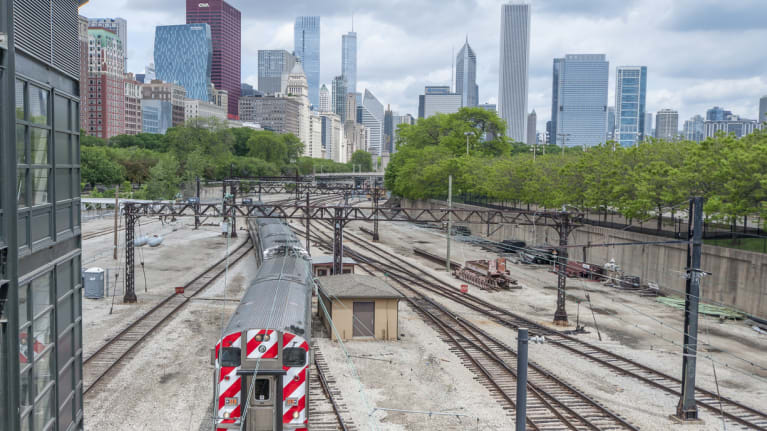
?The U.S. House of Representatives passed legislation Nov. 30 to avoid a debilitating nationwide rail strike. The measures now head to the Senate, which has until Dec. 9 to act before a strike might begin. President Joe Biden supports the measures, but passage in the Senate remains uncertain.
Rail workers recently voted against a tentative deal reached in September to prevent the strike, despite a robust pay package, because of the lack of paid sick time. Under the Railway Labor Act, Congress can prevent or end national rail strikes, but hasn’t done so since the 1990s.
We’ve gathered articles on the news from SHRM Online and other media outlets.
Seven Paid Sick Days Included in One Measure
The first measure on a tentative agreement passed 290-137. A resolution including seven paid sick days for railroad employees passed 221-207 mainly along party lines. Biden said, “Without action this week, disruptions to our auto supply chains, our ability to move food to tables and our ability to remove hazardous waste from gasoline refineries will begin.” Sen. Majority Leader Chuck Schumer, D-N.Y., said Nov. 29 that he and Senate Minority Leader Mitch McConnell, R-Ky., “agreed we’d try to get it done ASAP.”
(Axios)
Resolutions Head to Senate
Both resolutions now head to the Senate, where the second faces uncertainty. It’s not yet clear how many Republicans would support the addition of paid sick time. The measures were passed separately with this in mind. Regardless of whether there’s enough Republican support to give workers sick days, there might be enough votes to ensure a strike doesn’t happen on Dec. 9.
Several unions opposed Biden’s call for congressional action to approve the agreement without sick days. More than 750,000 people could be out of work if there is a strike, and transportation of food, fuel and other commodities could come to a standstill, Biden noted.
(Vox)
Progressive Opposition
Sen. Bernie Sanders, I-Vt., said Biden’s request for Congress to approve legislation blocking nearly 100,000 railroad workers from striking was inappropriate given the unions were still pushing for broader paid sick leave. It remains to be seen if seven days of sick leave will be included in the version of the legislation that the Senate will take up. The legislation first must overcome the possibility of a filibuster.
Biden Speaks Out on Union Support
Calling himself a “proud pro-labor president,” Biden said Nov. 28 in a statement, “I am reluctant to override the ratification procedures and the views of those who voted against this agreement. But in this case—where the economic impact of a shutdown would hurt millions of other working people and families—I believe Congress must use its powers to adopt this deal.”
(CNN)
September Agreement Was Only Tentative
Railway companies reached a tentative agreement with unions in September to avoid a strike then. But several rail unions subsequently rejected their contracts, partly because they have sought paid sick days, which they currently don’t get. There also is dissatisfaction with the scheduling model.
The last-minute decision to take a separate congressional vote on the paid-leave proposal rankled some Republicans, who called it a “poison pill” that would jeopardize the broader agreement to prevent a strike.
(SHRM Online), (The New York Times) and (The Washington Post)

